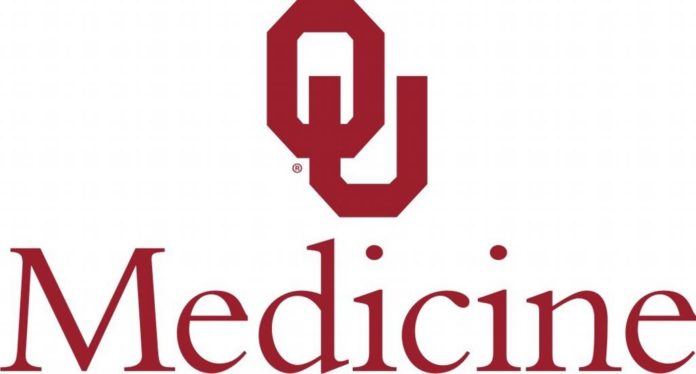Emergency medical care should never be delayed, and OU Medicine has implemented extensive protocols to ensure patients are kept safe in the Emergency Department as COVID-19 infections continue in Oklahoma.

For you. For health. For life.
Find your purpose at INTEGRIS…and your calling
APPLY TODAY AT
IntegrisOK.jobs
INTEGRIS considers all qualified applicants regardless of protected status as defined by
applicable law, including protected veteran or disability status.
AA/EOE
OU Medicine’s three Emergency Departments – at OU Medical Center, OU Medical Center Edmond, and The Children’s Hospital – have each created a safe environment so that patients can feel comfortable accessing the care they need. That includes universal masking, modified check-in to maintain physical distancing, personal protective equipment worn by all healthcare providers, and continuous disinfection of surfaces. In addition, OU Medicine has instituted employee screening, testing and isolation policies to ensure patients are cared for by a provider who is negative for COVID-19.
Many health conditions and injuries can prompt the need for someone to seek emergency care, and patients should feel confident that OU Medicine’s Emergency Departments are among the safest places to be, said Kris Gose, president of OU Medical Center.
“People should always feel like they can access emergency care safely and at the same high quality that we strive to provide each and every day,” Gose said. “We have taken every step possible so that our patients can safely seek care for urgent needs at any time of the day or night.”
As home to the state’s only Level 1 Trauma Center, the Emergency Department at OU Medical Center can handle any illness and injury, from strokes to cardiac pain to acute pain. Because OU Medicine is the state’s comprehensive medical center, patients have access to more specialists and subspecialists than anywhere else in the state, Gose said, and advanced technology is always available, including a cardiac catheterization/electrophysiology lab for patients needing heart and vascular care when minutes count.
People should especially be aware of the signs of stroke and heart attack and call 911 for immediate help. Signs of stroke include sudden numbness or weakness in the face, arm or leg; sudden confusion, trouble speaking or difficulty understanding speech; sudden trouble seeing; sudden trouble walking, dizziness, loss of balance or lack of coordination; and sudden headache with no known cause.
Signs of heart attack include pressure, tightness, pain or a squeezing or aching sensation in the chest or arms that may spread to the neck, jaw and back; nausea, indigestion, heartburn or abdominal pain; and shortness of breath, cold sweat, fatigue or lightheadedness with dizziness.
OU Medical Center Edmond is positioned to offer convenient care close to home, and as part of the OU Medicine system, it provides a seamless transition of care to OU Medical Center and The Children’s Hospital, both in downtown Oklahoma City, if necessary. The Edmond Emergency Department can treat a wide range of illnesses and injuries among all ages, and it provides specialized services to seniors, including hearing amplifiers, easy-to-maneuver rooms and hallways, aids for reading, and specially trained staff.
In addition, OU Medical Center Edmond has been designated as a non-COVID hospital. Patients who arrive with symptoms of COVID-19 are further screened and directed or transported to OU Medical Center downtown if they test positive for the virus.
“Emergency medical care never stops, and we want to assure people that our hospital is safe and operating at full capacity during this time of ongoing COVID-19 infections,” said Lisa Wilson, president of OU Medical Center Edmond. “We treat patients who have a wide range of needs, and we are supported by the expertise and tools of the entire health system.”
Parents and families can expect the same safety and level of care at The Children’s Hospital at OU Medicine. The Emergency Department at Children’s is Oklahoma’s only dedicated 24/7 pediatric emergency facility, and its physicians and medical staff are trained specifically in the healing of children. Children receive Level 1 Trauma Center care, and an additional Emergency Department specifically for women’s obstetrics is on the fourth floor of The Children’s Hospital.
Parents and caregivers should call 911 in the case of a life-threatening emergency, including if the child is unresponsive; has serious trouble breathing; has ingested something dangerous; has experienced a head injury and continues to vomit or has varying levels of alertness; is having seizures that won’t stop; and many other types of illness and injury.
The Children’s Hospital also has full-time Child Life Specialists who support children and families by explaining medical procedures, helping children with relaxation and coping skills, and providing opportunities for play, among other services.
“We know that in times of emergency, parents and caregivers want quick and high-quality care for their children,” said Jon Hayes, president of The Children’s Hospital. “As we all adjust to life with ongoing COVID-19 concerns, we know that other types of needs still arise, and we are committed to providing a safe atmosphere and peace of mind for both children and families.”













